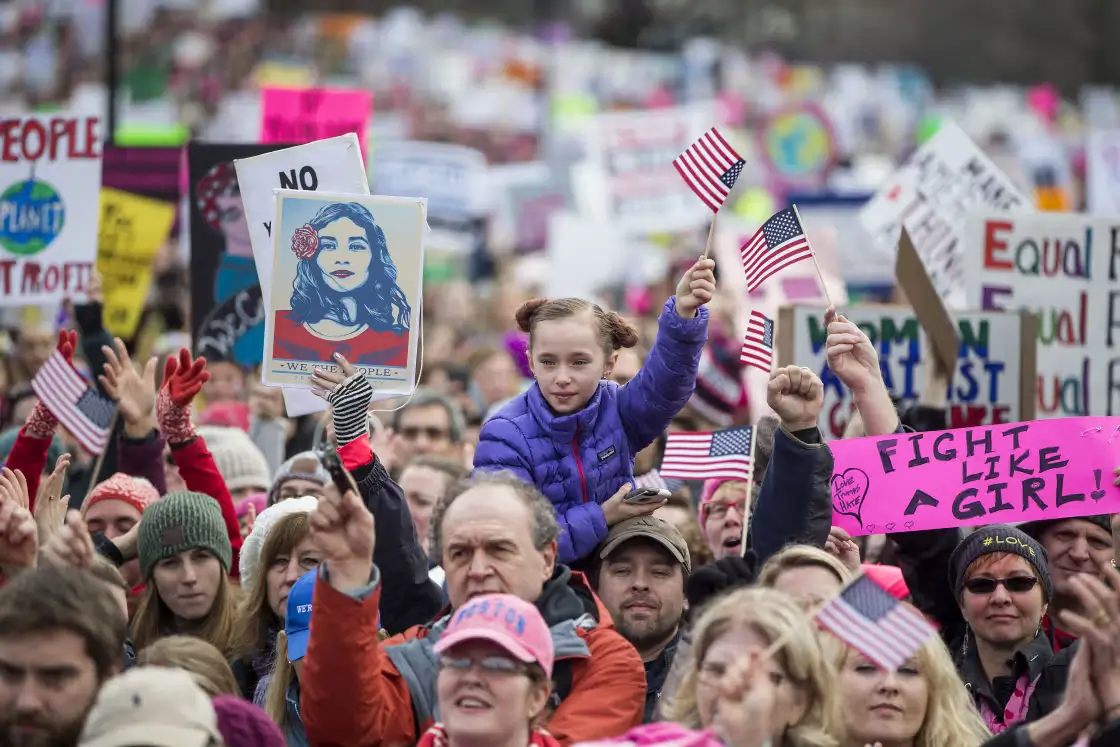
Trump’s second inauguration sees fewer protests and shifting dynamics compared to 2017.
Trump’s Second Inauguration: A Shift in Resistance and Fewer Protests
Donald Trump’s second inauguration is set against a dramatically different political landscape compared to his first, with fewer protests, less celebrity involvement, and a shift in Democratic attendance. Once a hotbed for massive resistance movements, Trump’s re-election has paved the way for a quieter, more subdued atmosphere as he prepares to take the oath of office once again.
As his second inauguration coincides with Martin Luther King Jr. Day, thousands of demonstrators are expected to voice their opposition, but their numbers will be far smaller than the historic protests of 2017. The fervor of the anti-Trump “Resistance” has simmered down significantly, leading many to question the long-term impact of their earlier efforts.
Trump’s Rising Popularity and Democratic Shifts
Trump’s re-election represents his first popular vote victory, adding new momentum to his base and tempering opposition sentiment. His approval ratings have reached an all-time high, with increasing optimism about the economy and immigration.
Democratic strategist Donna Brazile acknowledged this shift, saying, “The resistance that powered protests in 2017 has cooled significantly, and people are beginning to accept that Trump is here to stay.”
The political dynamics have also shifted in corporate America, with companies that once aligned with progressive causes now supporting Trump’s inaugural event, even sending their CEOs to attend and contribute to his inaugural committee.
Democrats Adjust Their Stance on Attendance
In 2017, over 60 Democratic lawmakers chose to boycott Trump’s inauguration. This time, however, fewer are planning to stay away. Many absences are now attributed to personal reasons rather than a deliberate snub. For instance, former House Speaker Nancy Pelosi is recovering from surgery and will not attend, while Rep. Alexandria Ocasio-Cortez cited “scheduling conflicts.”
Some Democratic figures who previously boycotted Trump’s first inauguration, including Rep. Jared Huffman, have now reconsidered their stance. Huffman remarked, “Whether we like it or not, he was reelected with full knowledge of who he is.”
Senator Ruben Gallego of Arizona echoed a similar sentiment, emphasizing the importance of bipartisanship. “The voters have spoken. We need to work together for the good of the country,” he stated.
Protests Diminish in Size and Scope
The anti-Trump protests set for this weekend are expected to draw significantly smaller crowds. The People’s March, organized by groups behind the 2017 Women’s March, has garnered fewer than 50,000 RSVPs, a far cry from the half-million people who flooded Washington in 2017. Other protests, including those planned for West Palm Beach and New York City, are seeing similarly low levels of interest.
Civil rights leader Rev. Al Sharpton will hold a rally in Washington to honor Martin Luther King Jr., but even this event will be more subdued compared to past demonstrations.
Vanessa Wruble, co-founder of the Women’s March, summed up the shift in tone, telling the BBC, “I didn’t even know [anti-inauguration protests] were still a thing.”
A Muted Celebrity Response
The celebrity-driven resistance that characterized the early days of Trump’s presidency is largely absent this time. In 2017, the Golden Globes and the Women’s March were marked by powerful speeches from Hollywood figures like Meryl Streep, Scarlett Johansson, and Cher. However, in 2025, the star power is significantly less pronounced.
Carrie Underwood will perform at Trump’s second inauguration, drawing some online backlash but also receiving unexpected support from figures like Whoopi Goldberg. Meanwhile, the Golden Globes ceremony this year featured only vague allusions to the nation’s political struggles, with minimal direct political commentary.
The Women’s March on Saturday will see activists take center stage, with fewer celebrity appearances than in years past. Comedian Josh Gondelman aptly noted, “Entertainment is moving away from resistance culture and instead focusing on pandering to Trump voters.”
Looking Toward the Future
Despite the quieter atmosphere surrounding Trump’s second inauguration, it will be closely followed by the annual March for Life, which organizers predict will draw around 150,000 participants—triple the expected turnout for the anti-Trump protests. This highlights the shifting dynamics in both conservative and progressive circles as the political landscape continues to evolve.
For Trump supporters, the diminished opposition represents a major victory, while critics are left reflecting on the challenges of maintaining sustained resistance. As the nation enters another chapter of Trump’s presidency, it’s clear that the strategies and energy of both supporters and opponents will continue to influence the country’s future.



